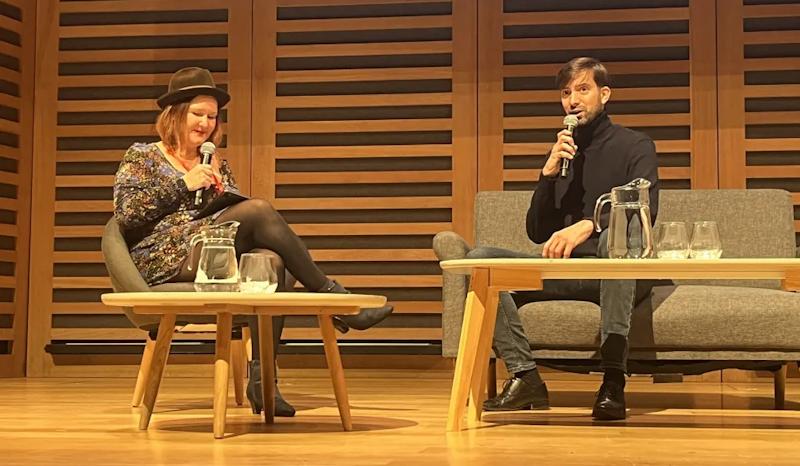Deezer’s CEO reveals new dimension to royalty changes
Image credit: Music Ally
After announcing three ways that Deezer were going to change how streaming royalties were measured last year, Deezer’s CEO reveals more.
Last year, Deezer rocked the music streaming world. They revealed significant changes to how they pay out royalties for music streams. Music streaming royalties have pretty much been set across all services since their inception, but they promised some of the most significant changes since music streaming was established – and Spotify followed shortly after with a similar announcement.
In their reveal, they laid out four areas in which they’ll be adjusting their royalties. Speaking at Music Ally Connect 2024, Deezer’s CEO Jeronimo Folgueira revealed another way in which they plan to adjust the royalties that they pay out.
In September, the reveal promised to reward artists who earn more than 1,000 streams and offer boosts to artists whose fans engage with them more. They also promised to demonetize non-musical noise audio like rain sounds and white noise. A stronger approach to fraud content was their final promise to generate more revenues for artists, particularly artists with an impact.
Folguiera revealed a new dimension that will see royalties adjusted depending on how users are listening to music. A new user cap will prevent a single listener’s power to take too much from the royalty pool. Users who stream more than 1,000 songs within a month will have their effect on royalty payouts “rebalanced”.
Folguiera said: “With 1,000 streams you capture 90-plus percent of the behaviour of the typical user. Anything above 1,000 is very prone to abuse, so by putting in the cap we are pretty sure we capture the majority of the real usage.” Though he adds that “everything counts and everything gets paid”.
He revealed that the average listener on Deezer streams 600 tracks a month. Users listening to more than 1,000 songs may well just be major music lovers but they have a lot of potential to be fraud streaming.
This specific policy introduces a taste of the user-centric model that Deezer wanted to introduce years ago. Deezer’s user-centric payment model proposed paying out royalties based on a direct correlation between a user’s payment and the songs that they are listening to. This would mean that their money would go directly to the artists they like, rather than a larger pool that is split by a streaming percentage.
The recent introduction of their artist-centric streaming model is a different direction that still aims to bolster artists’ place on the platform. Deezer have decided to reinvent themselves with their new royalty policies, which has come with a new rebrand that promises to focus 100% on music. No doubt a dig at Spotify and other service’s endeavours into a broader audio approach with a focus on podcasts and audiobooks.
So far, Deezer have announced partnerships with Warner Music Group and Universal Music Group to fulfil their new royalties approach. We wait to hear news on the expansion of their new policies to all music on the platform.
Folguiera says: “We want to continue reviewing the model and evolving it… Going into a more agile and evolving model is probably what we need.”
